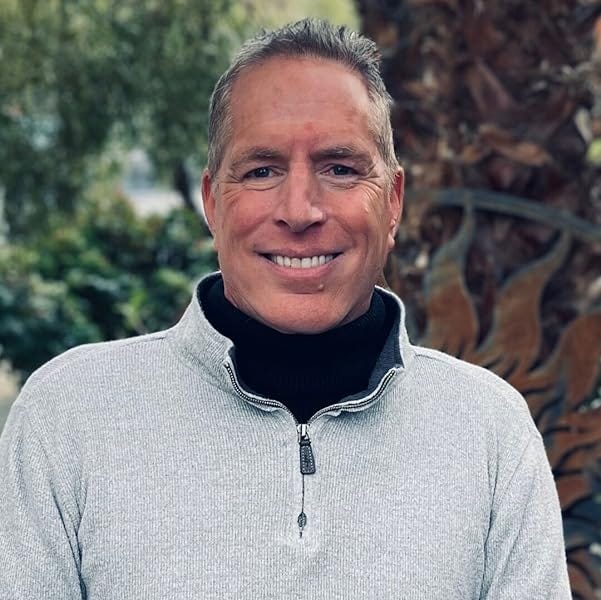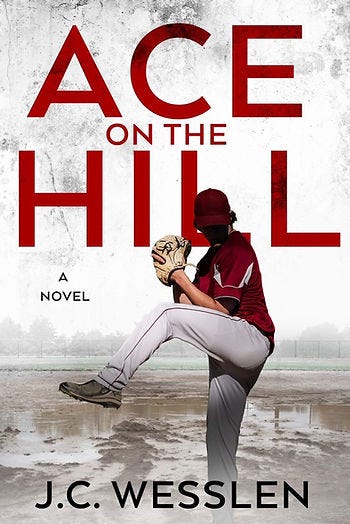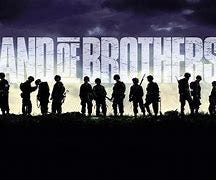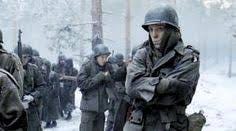From script to page: Journey to a "Semoir"
Author J.C. Wesslen shares his indie author journey... Plus the Band of Brothers Rewatch continues
J.C. Wesslen has written for A&E’s Biography series, The History Channel, the USA Network, and VH-1. He’s also worked as an independent script and story consultant for film and television writers in the greater Los Angeles area. J.C. is pleased to announce the completion of his first novel, Ace on the Hill, a coming-of-age story set outside Boston in the 1970s
CHOW: Welcome, Jon. Thanks so much for joining me on the CHOW, otherwise known as the Clueless Hack on Writing.
JC: Thanks for the invitation, Vince. Always good to chat with a fellow writer.
CHOW: Jon, you've built such a career writing for television. Tell us how you broke into the television business.
JC: Well, I majored in broadcast journalism at Syracuse University and had experience writing for campus television and radio stations. One thing I realized, though, is that at least at the time, news writing was deadline-oriented and didn’t require much creativity. When I moved to Los Angeles after graduation, I had my resume in hand and a $500 check from my father. I also brought a screenplay that I’d cranked out in about two months. Nothing materialized immediately with that script—or with any decent-paying jobs—so I was the epitome of the starving artist. In my spare time…and there was a lot of it (laughs)…I started hanging out playing pick-up basketball and at the local courts. I made a friend named Lee who just happened to be a script reader, a history buff, and a credited writer. He liked my script, we became writing partners, and soon he brought me into the fold at a small production company where we collaborated on documentaries for A&E and the History Channel.
CHOW: What made you decide to break into fiction with Ace On The Hill?
JC: This is where the screenplay would say “Long dissolve to…” The decision to begin a novel came WAY later… after another move, about a decade and a half later. I’d achieved a bit more success—emphasis on the word bit. Lee and I had landed an agent, we’d had several pitch meetings, and ended up selling a story idea to the Dead Zone (the USA television show based on the Stephen King novel). I’d also received my first producer credit on a History Channel documentary series called “The Color of War.” It was tempting to stick around, but I was also burned out and felt I needed a change of scenery and direction–career-wise. I moved to the Palm Springs area where I had some relatives. It wasn’t long before I earned my teaching credential, and became an educator. Children are a great audience and I found that when I spoke to them about my childhood, I realized I had some interesting stories. I began writing down notes and tucked them into a file. That file grew so much over time that it dawned on me that I could fill a book with the material.
CHOW: I think the pitcher on the cover of your book is a little misleading. Baseball is a part of this story, but it's so much more. Tell us a little about the story and what's the inspiration.
JC: You’re not the first person to mention that. Ace on the Hill started as a semi-autobiographical tale about awkward adolescence (is there any other kind?). So yes, it was part truth, part fiction. As an aside, maybe this could be a new genre: the “Sem-oir..?” Anyhow, the inspiration for the book was my family’s move to Massachusetts, I recalled how my new friends and I bonded immediately over the Red Sox and baseball in general. When I joined my first little league team that spring, I pitched and had a memorable outing. That’s how I envisioned things could wind up, no pun intended…with Jay taking the “hill” in a big game. But at heart, this is a coming-of-age story, as you implied, so I plan to release a second edition with a different cover–and some additional material.
CHOW: It reads so much like some of the great memoirs. I loved the small stories and anecdotes that tell universal coming of age truisms. Was your aim to capture that memoir spirit?
JC: I appreciate that, Vince. Yes, it was my aim. Absolutely. I wanted this novel to feel genuine. Many of the events in the book are based on situations I experienced, or witnessed, with “what if…?” twists. That gives it the memoir feel. It was fun to merge the “what-did-happen parts” with the what-could-have-happened ones.
CHOW: This novel has won a couple of awards from BookFest and The Best Indie Book Award. What is that like to receive recognition for your work?
JC: Yes, that was a complete surprise. I entered these competitions on a whim, figuring—why not? Other than the entry fees, there was nothing to lose. It was nice to have validation for the time and effort I put into the book.
CHOW: What is your process? Did you plan out your entire novel? Or did you discover the book as you wrote?
JC: I can’t say there was a disciplined approach like many writers have. As a teacher and a single dad, I found it difficult to predict my “down” times. Some days I was extremely productive, some days I wasn’t. When I finally assembled all the scenes I mentioned into a file on my laptop, I still had to craft a narrative. My screenwriting experience came in a bit handy here. I structured the book into three acts. Once I had that established, I focused on description and dialogue–and ultimately crafted the narrative.
CHOW: When you first started, what was the biggest eye-opener about the business of publishing and indie publishing?
JC: There were several. One is that writing the book is only half the battle, as you well know. I was thrilled to save my final draft, ready to pop the cork on the champagne…and then reality set in (laughs). I realized there was still editing, cover design, uploading–and let’s not forget the crucial element of marketing and promotion. Since I was new to the game, I didn’t realize many of these steps could, or should, be done in advance. I’d never had a website or joined social media until I finished Ace on the Hill, so I learned a lot on the fly. The other eye-opener for me was realizing how helpful the independent authors’ community is. I’d estimate that 99% of the writers I encountered online were interested in helping aspiring authors succeed. If you’ve recently written a book, or are thinking about starting one, I’d recommend joining one of the many writers’ groups on social media. I’d also suggest checking out the various web pages of authors whose work you admire to pick up tips and strategies.
CHOW: As Indie authors continue to find their space in publishing, what is the best advice in making the most out of the opportunity?
JC: As I mentioned above, don’t be afraid to seek assistance or support from others. Writing is a solitary activity, so it’s wonderful to know that there are many resources to explore where an aspiring author can reach out–no matter where they are in the process–and not feel alone.
CHOW: Thank you again for joining me today.
Rewatch: Band of Brothers
This year marks the 80-year anniversary of the D-Day Invasion, one of the single-most defining moments of modern history. Over the next few weeks, I’ll be conducting my own rewatch of this Emmy Award-winning series, share my impressions, insights I’ve learned through listening to the Band of Brothers rewatch Podcast with Roger Bennett (produced in 2021), and encourage participation now that it’s available on Netflix.
Episode 6: Bastogne. This week’s recap focuses on the two episodes detailing the Battle of the Bulge. In history books and movies, this conflict has been told through Patton’s triumphant tank offensive through Belgium that saved the surrounded battalion. In these episodes, we find the courageous efforts of Easy Company and the rest of the Battalion as they resisted the German offensive despite the frigid cold, little to no supplies, constant bombardment and no reinforcements.
This episode is told through the eyes of medic Eugene Roe (played by Shane Taylor) as he rushes from Foxhole to Foxhole helping the wounded. Bastogne is a desperate place, the town is besieged without enough doctors, bandages, or even morphine. Through it all, Roe has a singular focus of helping the men, even as trees are exploding around him.
Podcast nugget: Taylor is British, yet he nails a subtle Louisiana accent. During actor boot camp, he learned how to bandage, use sulfur wounds, and more and got to be so good, that other actors went to him for advice on minor injuries. Even Ron Livingston asked Taylor to help him remove a fishbone that was lodged in his throat.
Episode 7: The Breaking Point. After more than a month of living outside in the frigid Belgian winter, Easy Company hits its physical and mental limit. As the Germans barrage their position again and again, many of the soldiers and characters we’ve come to love are injured or killed. Other soldiers break emotionally and cannot go on. This is the darkest point in Easy Company’s story.
Podcast nugget and Young Actor Alert: The guest with Roger Bennett on the Band of Brothers rewatch podcast was the New Kid himself Donnie Wahlberg. Wahlberg played Staff Seargent Carwood Lipton and this episode focuses on Lipton’s cool, steady, leadership amidst the chaos. Wahlberg said he talked to the real Lipton almost every day. Wahlberg said Lipton shared he only sleeps three hours a night, because he doesn’t want to miss anything.
Fictionistas Flash Fiction
Flash Fiction: A Tale of Interrupted Passion
At the Fictionistas June Let’s Write Together, Nicole Rivera and Sara Hildreth provided the following prompt:
Write a story where the protagonists are whispering.
Why might they be whispering? Is it because what they are saying is a secret? Where are they — in a library, a cinema, a closed closet?









Enjoyed reading the interview with J.C. Weslen, Vince. Nice to hear his thoughts about writing a novel or even a book of stories based on true experiences. I like the term “semoir”. 🙂